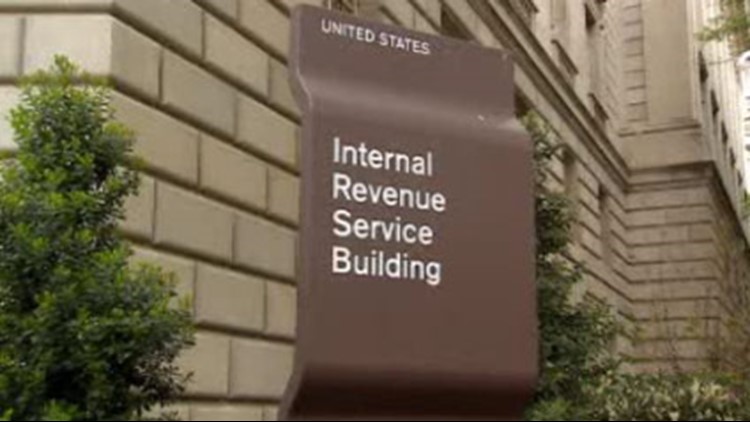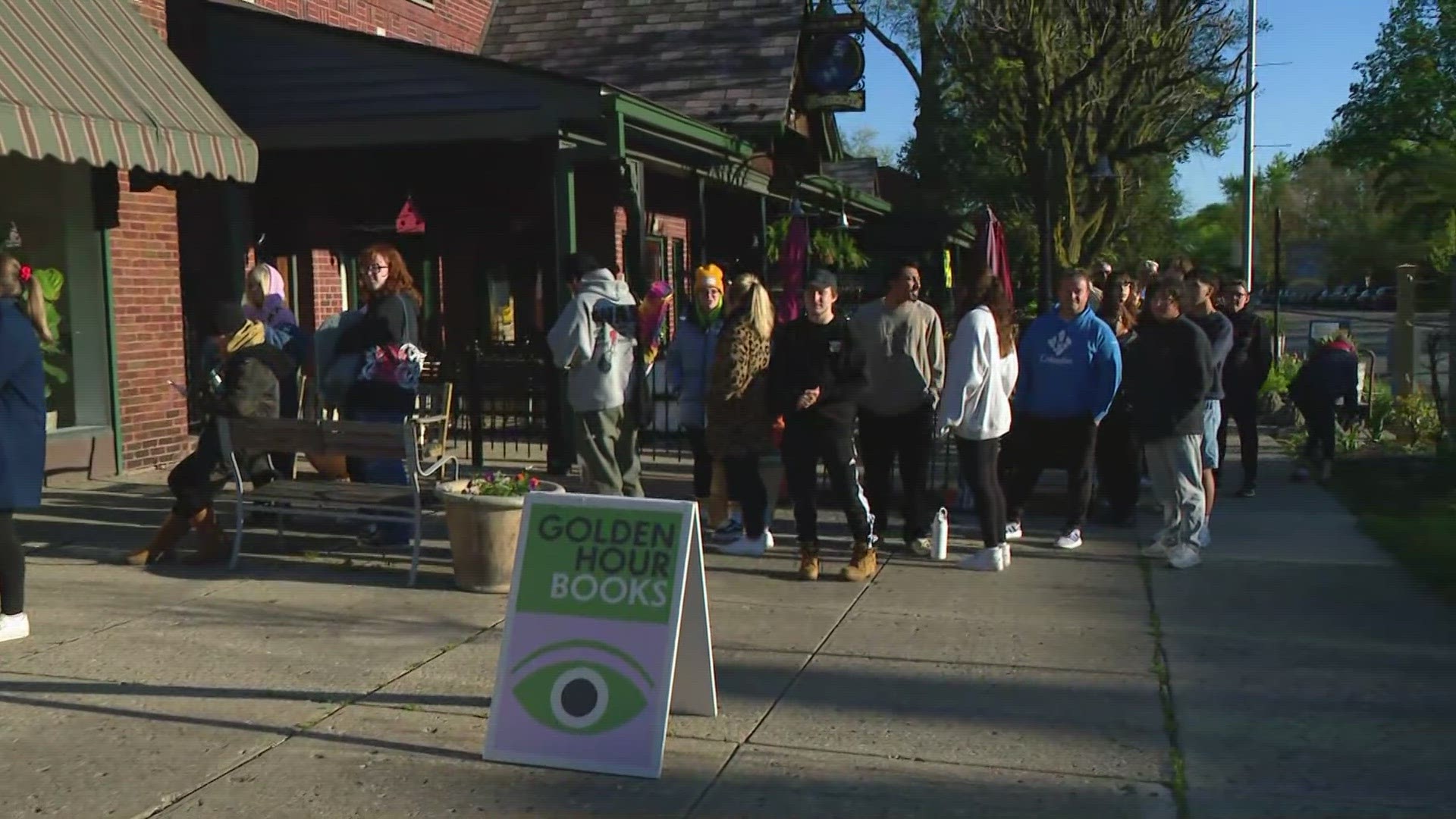During the past ten years, Treasury Inspector General for Tax Administration Russell George says he's seen a lot of audit reports. But he admits he's never seen one quite like the report his agency issued yesterday.
"It's quite shocking and very disappointing," he said.
The TIGTA audit pulls few punches, beginning with its hefty and straight-to-the-point title: "Substantial Changes Are Needed to the Individual Taxpayer Identification Number Program to Detect Fraudulent Applications."
The 46-page report outlines what Russell calls "blatant and brazen" attempts to defraud the IRS out of billions of dollars in tax refunds and the IRS' systemic breakdown in detecting widespread the fraud.
13 Investigates exposed that breakdown months ago, as IRS whistleblowers contacted WTHR to share their stories. Some of those whistleblowers also contacted TIGTA, and their complaints prompted a year-long inspector general investigation culminating in the final audit report released this week.
"This is one of those rare cases when we actually validated almost every allegation that was alleged," Russell said, speaking to WTHR via satellite from an NBC News Bureau in Washington, D.C. "That is a new one for me. What we discovered was very disturbing."
The report says IRS managers at the ITIN processing center in Austin, Texas, created an environment which discouraged tax examiners from detecting fraudulent ITIN applications.
An ITIN is a unique 9-digit identification number for taxpayer identification and income reporting that is issued to individuals who are not authorized to work in the United. A WTHR investigation discovered many undocumented workers obtain ITIN numbers for themselves and family members in order to claim tax credits for which they are not legally entitled.
IRS tax examiners told WTHR they were pressured to process a high number of ITIN applications that showed signs of fraud.
"We were being told by upper management to ignore fraud and to assign ITINs and it's a license to steal when you allow that," said longtime IRS tax examiner Howard Antelis.
The TIGTA report substantiated those allegations, and it also provided specific examples.
Last year in Indianapolis, the IRS issued 8,714 ITIN numbers to undocumented workers who all claimed to have the same address.
In Atlanta, 24,000 undocumented workers listed the same address on their tax returns, and the IRS paid more than $46 million in refunds to that one location.
And near Detroit, the IRS issued 604 ITIN numbers and 640 tax refunds to one address that was associated with an ITIN application that had already been rejected by the IRS due to questions about its legitimacy. Despite the questions, the IRS issued more than $1.5 million in tax refunds to that address.
"I've been the inspector general of this organization for almost ten years now and have never seen an instance where a single address has tried to abuse the tax system in the way that it has and in the dollar amount it has," George said. "It's most definitely an indicator of fraud."
Stopping that fraud is now a priority, according to the IRS.
Just days after 13 Investigates first reported whistlelblowers' shocking allegations, the IRS announced changes to better identify fraud and save taxpayer money.
That's how the system should work, according to the inspector general.
"These whistleblowers are heroes in my mind," he said.
George says he is pleased with the IRS' response to his agency's audit report, pointing out the IRS has agreed to make seven of the nine changes recommended in the audit.
Others are less impressed.
Rep. Sam Johnson, R-Texas, a member of the House's tax-writing committee, responded to the report by calling for the resignation of IRS Commissioner Douglas Shulman.
In a letter to the commissioner, Johnson claimed the IRS is helping illegal immigrants defraud the government.
"The commissioner and certain IRS officials are essentially aiding and abetting illegal immigrants and others in fraudulently receiving tax refunds courtesy of the American taxpayer," Johnson said.
Why did the IRS need a year-long audit by the inspector general to realize it had a widespread problem costing taxpayers billions of dollars? Why did the agency fail to take action despite repeated complaints by its own tax examiners? Why did the agency fail to heed warnings sent a decade earlier by the inspector general's office?
Those questions have not yet been answered by the IRS, and the agency has not responded to any of WTHR's questions regarding allegations of managerial misconduct at its Texas processing center.
However, the IRS did send WTHR the following statement in response to the TIGTA audit report:
The IRS appreciates TIGTA's assistance in assessing this important program. Every year, billions of dollars in taxes are paid, and tens of billions of dollars in income are reported on tax returns filed using Individual Taxpayer Identification Numbers (ITINs). IRS senior management moved quickly and aggressively to address issues that were identified. The IRS immediately made program changes to strengthen the documentation standards required in order to obtain an ITIN.
For example, the interim procedures now in place require that only original documentation, or certified copies from the original agency can be submitted to the IRS. Under these procedures, the IRS will no longer accept notarized documents or applications processed through certifying acceptance agents unless original documentation is attached. The IRS has also worked with colleagues at the Department of Homeland Security to obtain specialized training in validating documents and the identity of the applicant.
The IRS has also purchased new tools and equipment to help employees improve their ability to detect fraudulent documents. In addition to these immediate steps, the IRS is also conducting a comprehensive review of the ITIN program, and will announce permanent program changes before the next tax filing season. The IRS strongly disagrees with inferences in this report that the use of the same address for multiple ITIN applications and tax returns is conclusive evidence of fraud.
The IRS is aware that in some of these cases a large number of taxpayers are using the address of a paid tax return preparer as their mailing address. While this is one of many risk factors for fraud, it is also the case that some taxpayers list the address of the tax return preparer to ensure that any future correspondence from the IRS is received. The IRS is analyzing this issue in more detail as it conducts its review of the ITIN program.
The inspector general says his agency will follow up with the IRS to make sure it is making substantial changes to identify ITIN fraud and to save taxpayer dollars.
"This is far from the end. We are going to ensure they do what they claim they're going to do," George said.



